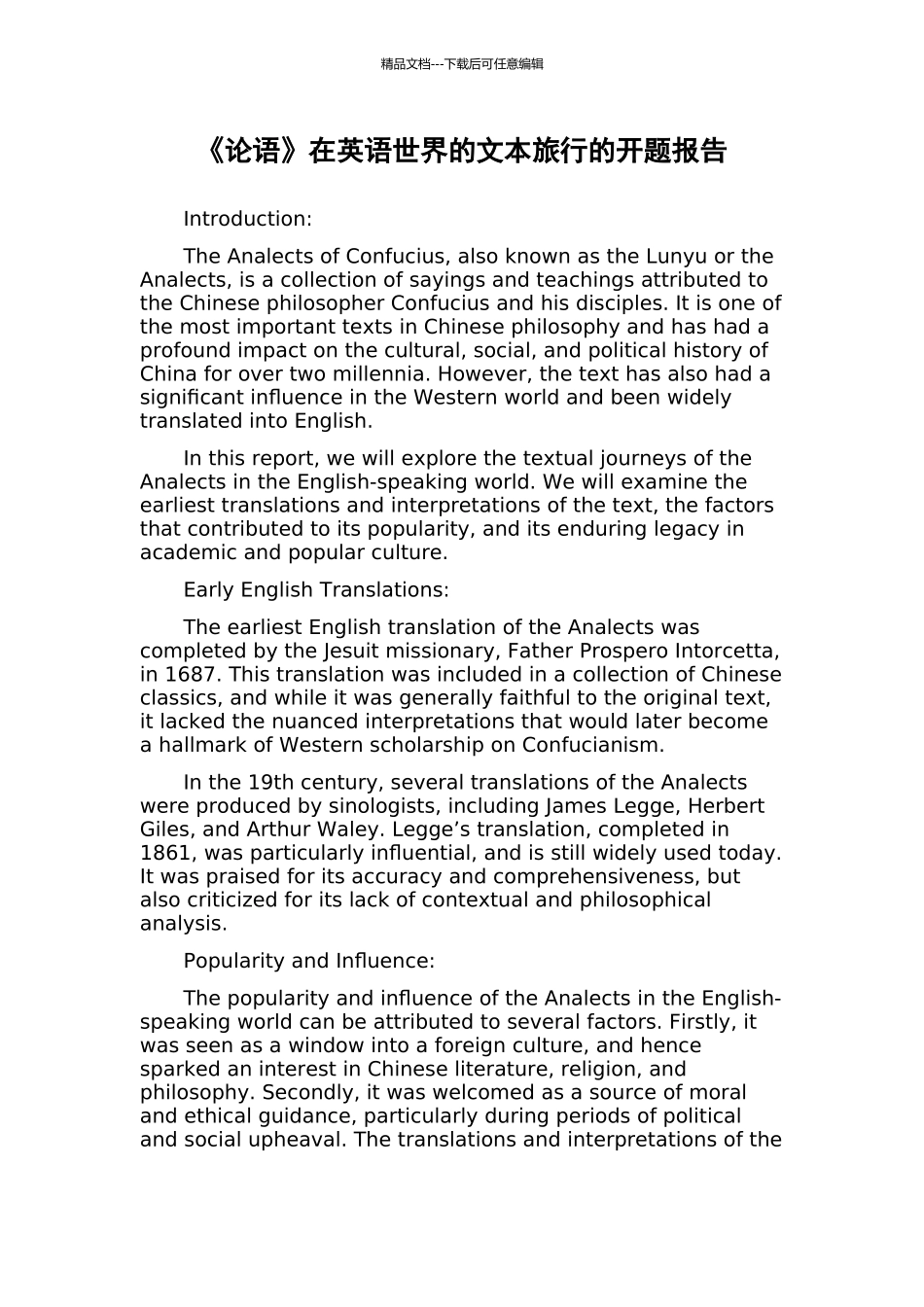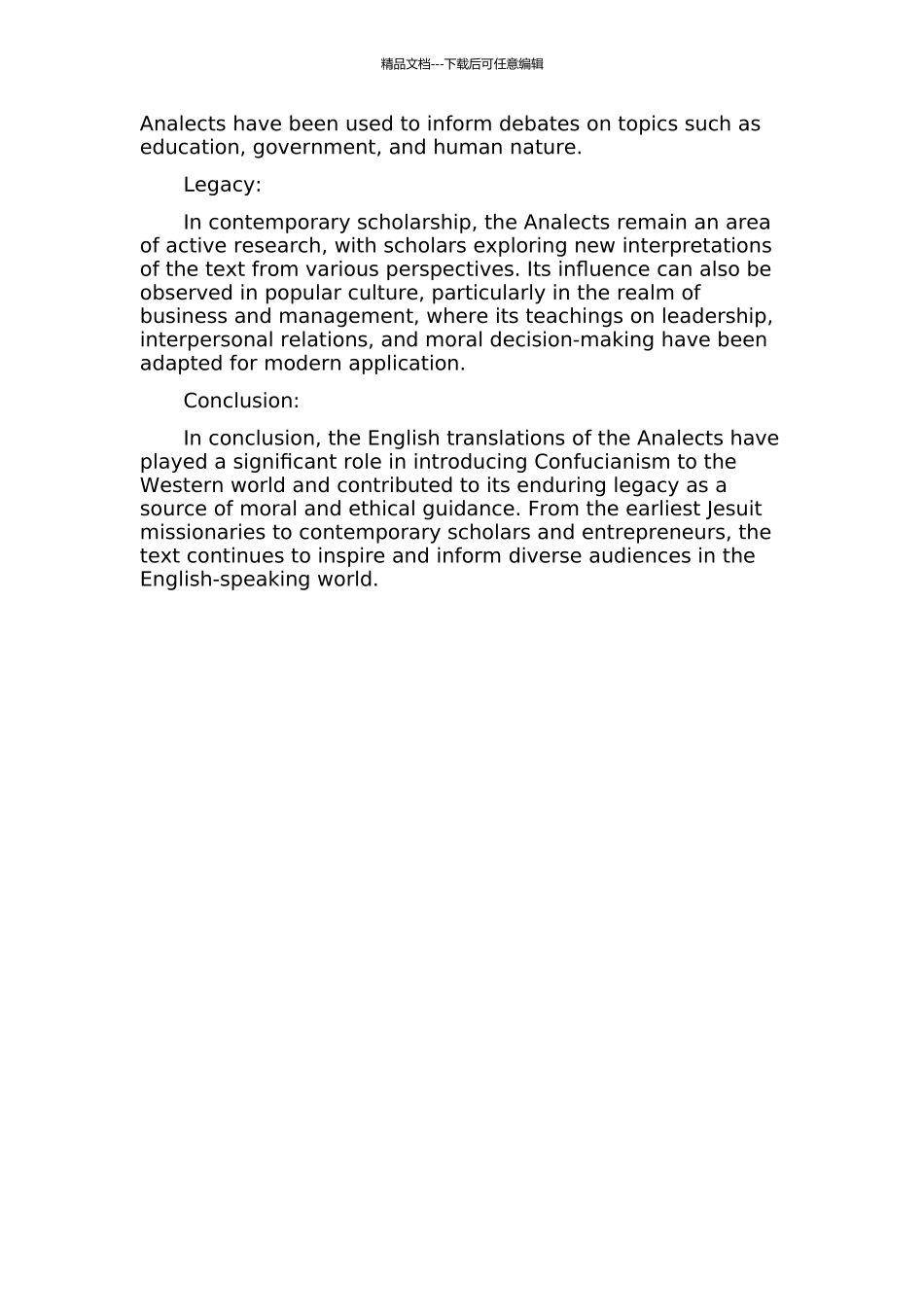精品文档---下载后可任意编辑《论语》在英语世界的文本旅行的开题报告Introduction:The Analects of Confucius, also known as the Lunyu or the Analects, is a collection of sayings and teachings attributed to the Chinese philosopher Confucius and his disciples. It is one of the most important texts in Chinese philosophy and has had a profound impact on the cultural, social, and political history of China for over two millennia. However, the text has also had a significant influence in the Western world and been widely translated into English.In this report, we will explore the textual journeys of the Analects in the English-speaking world. We will examine the earliest translations and interpretations of the text, the factors that contributed to its popularity, and its enduring legacy in academic and popular culture.Early English Translations:The earliest English translation of the Analects was completed by the Jesuit missionary, Father Prospero Intorcetta, in 1687. This translation was included in a collection of Chinese classics, and while it was generally faithful to the original text, it lacked the nuanced interpretations that would later become a hallmark of Western scholarship on Confucianism.In the 19th century, several translations of the Analects were produced by sinologists, including James Legge, Herbert Giles, and Arthur Waley. Legge’s translation, completed in 1861, was particularly influential, and is still widely used today. It was praised for its accuracy and comprehensiveness, but also criticized for its lack of contextual and philosophical analysis.Popularity and Influence:The popularity and influence of the Analects in the English-speaking world can be attributed to several factors. Firstly, it was seen as ...

